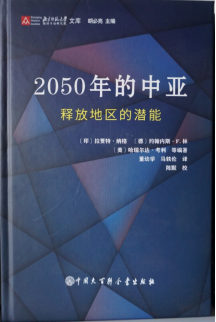
Central Asia is an important node of the ancient Silk Road,and there was a "golden age" involved. In the 1990s, the five Central Asian countries regained their political independence, but experienced a recession in economic transition. In the 21 st century, with the global commodity boom, Central Asian countries have made certain achievements. However, Central Asia still faces a series of new challenges: the increasing shortage of water resources not only threatens the agriculture and energy of all countries, but also becomes a potential contradiction among countries. The business environment and government governance lag far behind the global average; Problems such as inadequate investment in education and human capital; energy sector and agriculture need transformation, and the connectivity between Central Asia and neighboring countries is in urgent need of upgrading. If these challenges are not resolved, it will affect the development of Central Asia for the next 35 years.
This book predicts that by 2050, income levels in Central Asia will be among the developed world, with social, institutional and governance indicators reaching today's levels in South Korea and Europe, of which most people becoming middle class. Central Asia needs to overcome these major challenges in order to achieve these ambitious goals. The book lists the main tasks that Central Asia needs to do to overcome the challenges: it needs to work together within the region and work more closely with the big countries in neighbouring regions to integrate their industries into the global industrial chain. To learn from the global experience of the transition to success. Central Asia will occupy an important position in the Belt and Road initiative initiated by China .
Author Introduction:
Rajat M. Nag Former Executive Vice President of the Asian Development Bank, currently a special professor of the emerging Markets Research Institute of Beijing normal University, a special research fellow of the National Council for Applied Economic Research of India and a senior fellow of the emerging Markets Forum of the United States. Chairman of the "Eastward" Commission of the Indian Council of Commerce and Industry.
Johannes F. Linn Former Vice President, World Bank (for Europe and Central Asia), Senior fellow, emerging Markets Forum, USA and Senior visiting fellow, Brookings Institution.
Harinder Kohli US Emerging Markets Forum founder, Chief Executive Officer, Beijing normal University emerging Markets Research Institute distinguished professor, Emerging Market International Journal editor-in-chief.